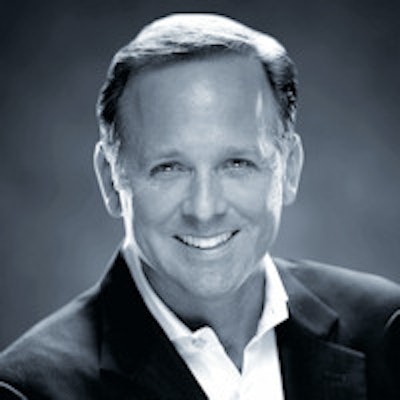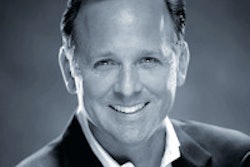
True to its name, March Madness was filled with some nail-biting, bracket-breaking games, none more so than the final. But as I watched the University of North Carolina's steady domination and progression game after game until the national championship game, I couldn't help but think of the school's most famous alumnus, Michael Jordan, and how he dominated in the NBA for 15 seasons.
 Jay Geier is the president and founder of the Scheduling Institute.
Jay Geier is the president and founder of the Scheduling Institute.Jordan is arguably the best basketball player of all time. Even if you didn't grow up watching his prowess on the court, you've seen through highlight reels what he's capable of accomplishing.
No question his physical gifts were exceptional. But interestingly, he attributes much of his success to a nonphysical trait -- his attitude.
"My best skill was that I was coachable. I was a sponge and aggressive to learn," he said.
Even his college basketball coach, Dean Smith, said he "had never seen a player listen so closely to what the coaches said, and then go and do it."
I am a firm believer in the power and effectiveness of coaching outside of sports as well. I have always been in some type of business coaching program and will continue to be for as long as possible. It has contributed, in large part, to my personal and professional successes over the years.
Not surprising, there are countless studies, articles, and data that support business coaching in terms of increased revenue, increased employee engagement, and overall employee satisfaction. In fact, 63% of organizations utilize some form of coaching, according to Cornerstone Coaching and Leadership. It's gone from "fad to fundamental" and for good reason.
All that's great, but I've realized over the years that certain characteristics set people up for greater successes in coaching programs. These characteristics make you truly coachable. And if you really want to "be like Mike," being coachable can bring you great successes. The characteristics are listed below:
Humility
Know that you don't know it all. To be coachable, you need to swallow your pride and recognize that, like in sports, there is always going to be someone better than you, smarter than you, or quicker than you.
Jordan has said, "Even if I thought my coaches were wrong, I tried to listen and learn something."
Humility allows you to recognize and know you have something new to learn, as well as be open to new ideas and strategies.
Intention
“If you don't commit, you will surely quit.”
Nothing gets done without intention driving it. In fact, the whole idea of making goals is so that you can go after them with intention. When you become intentional, you don't accept what happens to you -- you direct it. You are the catalyst for your success. And if you are intentional about learning and growing through a coach, you've set yourself up for a great outcome.
Accountable
People often ask me the key to how I can get things done -- it's accountability. I have always believed in the power of being held accountable. I have found that it is what keeps me on track. As a business owner, there really is no accountability -- there is no structure. So I actually pay for someone to hold me accountable. If you own your practice, you need structure. You need accountability around you.
Flexible/changeable
This is key. If you aren't willing to change or be flexible, don't bother investing in a coach to help you. And that could be a change in attitude, change in the way you invest, or change in the way you have always managed your practice. You have to be willing to make some sacrifices, part with some money, part with some ego, and open yourself up to change.
Committed
If you don't commit, you will surely quit. I know it sounds corny, but it's true. If you aren't fully committed to following an experienced coach's lead, you will be disappointed and bail out. Be sure to choose a coach who is results-oriented and guides you with experience and proven practices.
Sound like you? Consider a coaching program. Listen, if you're looking to grow your practice, you need to be around other people who are pursuing growth and success, like you. Bad decisions occur in isolation -- they never occur in a group.
Jay Geier is the president and founder of the Scheduling Institute. For more information on the institute's trainings, visit www.sionsitesolutions.com.
The comments and observations expressed herein do not necessarily reflect the opinions of DrBicuspid.com, nor should they be construed as an endorsement or admonishment of any particular idea, vendor, or organization.


















